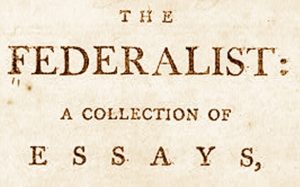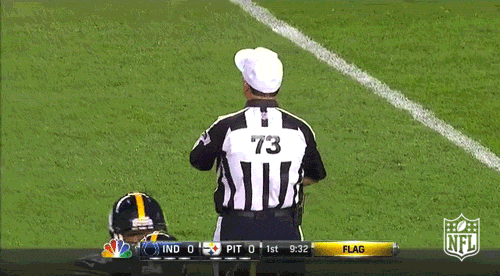 In one of many recent election-law disputes, the panel majority in Richardson v. Hughs painstakingly reviewed, and rejected, the plaintiffs’ challenge to Texas’s practices about signature verification for mail-in ballots. The procedural posture was a motion to stay; a concurrence cauti
In one of many recent election-law disputes, the panel majority in Richardson v. Hughs painstakingly reviewed, and rejected, the plaintiffs’ challenge to Texas’s practices about signature verification for mail-in ballots. The procedural posture was a motion to stay; a concurrence cauti oned: “[T]he reality is that the ultimate legality of the present system cannot be settled by the federal courts at this juncture when voting is already underway, and any opinion on a motions panel is essentially written in sand with no precedential value ….” footnote omitted). No. 20-50774 (Oct. 20, 2020).
oned: “[T]he reality is that the ultimate legality of the present system cannot be settled by the federal courts at this juncture when voting is already underway, and any opinion on a motions panel is essentially written in sand with no precedential value ….” footnote omitted). No. 20-50774 (Oct. 20, 2020).
Category Archives: Standing / Ripeness / Justiciability
If the law had an attic, it would hold the subject matter of Pool v. City of Houston, No. 19-20828 (Oct. 23, 2020):

It is often said that courts “strike down” laws when ruling them unconstitutional. That’s not quite right. Courts hold laws unenforceable; they do not erase them. Many laws that are plainly unconstitutional remain on the statute books. Jim Crow-era segregation laws are one example. The City of Houston contends that it’s being sued for one of these so-called “zombie” laws. Its Charter allows only registered voters to circulate petitions for initiatives and referenda, even though the Supreme Court held a similar law unconstitutional twenty years ago. This case thus requires us to decide when the threat of continued enforcement is enough to reanimate a zombie law and bring it from the statutory graveyard into federal court.
 (citations omitted). Held: the zombie walked, based both on the City’s history of enforcement of this specific law, and the inadequacy of its effort to disclaim further enforcement: “At least based on the current record, the City’s addition of the ‘Editor’s note’ on its website does not moot this case. Voluntarily stopping an unconstitutional practice renders a case moot only ‘if subsequent events ma[k]e it absolutely clear that the allegedly wrongful behavior c[an] not reasonably be expected to recur.'” You can hear more about this case on the Coale Mind Halloween Special – “Attack of the Zombie Statute!”
(citations omitted). Held: the zombie walked, based both on the City’s history of enforcement of this specific law, and the inadequacy of its effort to disclaim further enforcement: “At least based on the current record, the City’s addition of the ‘Editor’s note’ on its website does not moot this case. Voluntarily stopping an unconstitutional practice renders a case moot only ‘if subsequent events ma[k]e it absolutely clear that the allegedly wrongful behavior c[an] not reasonably be expected to recur.'” You can hear more about this case on the Coale Mind Halloween Special – “Attack of the Zombie Statute!”
 John Dierlam doggedly pursued his religious-freedom challenge to the Affordable Care Act throughout that statute’s “serpentine history.” After considering his persistence in the face of constant statutory change, the Fifth Circuit reversed a finding of mootness, observing: “Ordinarily, when a case ‘has become moot on appeal,’ the court
John Dierlam doggedly pursued his religious-freedom challenge to the Affordable Care Act throughout that statute’s “serpentine history.” After considering his persistence in the face of constant statutory change, the Fifth Circuit reversed a finding of mootness, observing: “Ordinarily, when a case ‘has become moot on appeal,’ the court  should “vacate the judgment with directions to dismiss.” But ‘in instances where the mootness is attributable to a change in the legal framework governing the case, and where the plaintiff may have some residual claim under the new framework that was understandably not asserted previously,’ we ‘vacate the judgment and remand for further proceedings in which the parties may, if necessary, amend their pleadings or develop the record more fully.’” Dierlam v. Trump, No. 18-20440 (Oct. 15, 2020).
should “vacate the judgment with directions to dismiss.” But ‘in instances where the mootness is attributable to a change in the legal framework governing the case, and where the plaintiff may have some residual claim under the new framework that was understandably not asserted previously,’ we ‘vacate the judgment and remand for further proceedings in which the parties may, if necessary, amend their pleadings or develop the record more fully.’” Dierlam v. Trump, No. 18-20440 (Oct. 15, 2020).
 The most recent episode of the Coale Mind podcast discusses Mi Familia Vota v. Abbott, No. 20-50793 (Oct. 14, 2020), a challenge to several Texas voting laws in light of the COVID-19 pandemic. The case reminds of two important limits on federal judicial power in such disputes:
The most recent episode of the Coale Mind podcast discusses Mi Familia Vota v. Abbott, No. 20-50793 (Oct. 14, 2020), a challenge to several Texas voting laws in light of the COVID-19 pandemic. The case reminds of two important limits on federal judicial power in such disputes:
- Under Ex parte Young (Mr. Young appears to the right): “Although a court can enjoin state officials from enforcing statutes, such an injunction must be directed to those who have the authority to enforce those statutes. In the present case, that would be county or other local officials.”
- And naming the right defendant is only the first hurdle posed by federalism: “An examination of the relief that the Plaintiffs seek in the case before us reveals that in many instances, court-ordered-relief would require the Governor or the Secretary of State to issue an executive order or directive or to take other sweeping affirmative action. If implemented by the district court, many of the directives requested by the Plaintiffs would violate principles of federalism.”
 A nonprofit complained about a lack of press access to the Texas legislative session in 2019, and argued that the case avoided mootness because of the “capable of repetition yet evading review” exception to that doctrine. The Fifth Circuit disagreed, noting that the nonprofit had not fully used the available tools to move its case along: “Crucially, Empower never asked this court to expedite its appeal. Both the Federal Rules of Appellate Procedure and this court’s local rules allow a party to move the court for an expedited appeal. Empower did not take advantage of these rules. That relaxed approach can be contrasted with a
A nonprofit complained about a lack of press access to the Texas legislative session in 2019, and argued that the case avoided mootness because of the “capable of repetition yet evading review” exception to that doctrine. The Fifth Circuit disagreed, noting that the nonprofit had not fully used the available tools to move its case along: “Crucially, Empower never asked this court to expedite its appeal. Both the Federal Rules of Appellate Procedure and this court’s local rules allow a party to move the court for an expedited appeal. Empower did not take advantage of these rules. That relaxed approach can be contrasted with a  recent case in this court involving a plaintiff who similarly sought an injunction against public officials so that he could attend school-district meetings and activities. … In [that case], two days after the appealed was docketed, the plaintiff–appellant filed a motion for expedited appeal which, he argued, was “necessary to redress [the] ‘irreparable injury.’” We granted that motion and moved the case along with appropriate dispatch.
recent case in this court involving a plaintiff who similarly sought an injunction against public officials so that he could attend school-district meetings and activities. … In [that case], two days after the appealed was docketed, the plaintiff–appellant filed a motion for expedited appeal which, he argued, was “necessary to redress [the] ‘irreparable injury.’” We granted that motion and moved the case along with appropriate dispatch.
In contrast, Empower demonstrated no such urgency. When time is of the essence, a party must act like it.” Empower Texas, Inc. v. Geren, No. 19-50577 (Oct. 5, 2020) (citations omitted).
 Earlier this month, the Fifth Circuit found an abuse of discretion, under Texas substantive law, in not modifying a noncompetition agreement at the preliminary-injunction stage. Calhoun v. Jack Doheny Cos., Inc. But because the parties had settled their case in the meantime, notifying the district court but not the Fifth Circuit, the case had become moot at the time of that opinion, prompting the Court to withdraw its opinion and dismiss the matter with prejudice. No. 20-20068 (Aug. 28, 2020).
Earlier this month, the Fifth Circuit found an abuse of discretion, under Texas substantive law, in not modifying a noncompetition agreement at the preliminary-injunction stage. Calhoun v. Jack Doheny Cos., Inc. But because the parties had settled their case in the meantime, notifying the district court but not the Fifth Circuit, the case had become moot at the time of that opinion, prompting the Court to withdraw its opinion and dismiss the matter with prejudice. No. 20-20068 (Aug. 28, 2020).
 (This activity about a case named Calhoun prompted me to check in on the M/V CALHOUN, a ship that under another name created a memorable mootness argument– “The ship has sailed!” – when it left the Fifth Circuit before creditors could seize it. The ship continues to be elsewhere, arriving in Venezuela as of the date of this post.)
(This activity about a case named Calhoun prompted me to check in on the M/V CALHOUN, a ship that under another name created a memorable mootness argument– “The ship has sailed!” – when it left the Fifth Circuit before creditors could seize it. The ship continues to be elsewhere, arriving in Venezuela as of the date of this post.)
“Mistah Kurtz — he dead.” Joseph Conrad, Heart of Darkness.
Spell v. Edwards presented a challenge to a COVID-19 restriction that became moot with the passage of time: “A Louisiana church and its pastor ask us enjoin stay-at-home orders restricting in-person church services to ten congregants. But there is nothing for us to enjoin. The challenged orders expired more than a month ago. That means this appeal and the related request for an injunction … are moot.” Notably, the restriction expired by its own terms, showing that it was not abandoned as a litigation tactic, and thus making inapplicable the “capable of repetition, yet evading review” exception to mootness. No. 20-30358 (June 18, 2020).
 The COVID-19 crisis has required the courts to deftly juggle conflicting, and important, interests when asked to review emergency regulation. A good summary of such a balancing exercise appears in First Pentecostal Church of Holly Springs v. City of Holly Springs: “Our sole appellate jurisdiction in this case rests upon denial of an injunction implied from the choice by the district court not to rule in an expedited fashion. After briefing, it remains plain that the court is being requested to enjoin a shifting regulatory regime not yet settled as to its regulation and regulatory effect, such as the apparent acceptance by the Church of the Governor’s regulations. That settlement is best made by the district court in the first instance. Lest we in error step upon treasured values of religious freedom and personal liberties we stay our hand and return this case to the district court for decision footed upon a record reflecting current conditions.” No. 20-60399 (May 22, 2020) (emphasis added).
The COVID-19 crisis has required the courts to deftly juggle conflicting, and important, interests when asked to review emergency regulation. A good summary of such a balancing exercise appears in First Pentecostal Church of Holly Springs v. City of Holly Springs: “Our sole appellate jurisdiction in this case rests upon denial of an injunction implied from the choice by the district court not to rule in an expedited fashion. After briefing, it remains plain that the court is being requested to enjoin a shifting regulatory regime not yet settled as to its regulation and regulatory effect, such as the apparent acceptance by the Church of the Governor’s regulations. That settlement is best made by the district court in the first instance. Lest we in error step upon treasured values of religious freedom and personal liberties we stay our hand and return this case to the district court for decision footed upon a record reflecting current conditions.” No. 20-60399 (May 22, 2020) (emphasis added).
 Continuing a line of thought from earlier 2019 authority about standing to challenge administrative-agency action, the Fifth Circuit found an organization’s alleged standing was too attenuated when it “contend[ed] that its injuries are traceable to Treasury’s actions because Treasury has plenary authority over the [Low-Income Housing Tax Credit] program, including the power both to issue regulations and to recapture LIHTCs from investors who violate the [Fair Housing Act].” Inclusive Communities Project, Inc. v. Dep’t of the Treasury also shows that the style trend toward use of contractions hasn’t lessened as 2019’s continued. No. 19-10377 (Dec. 30, 2019).
Continuing a line of thought from earlier 2019 authority about standing to challenge administrative-agency action, the Fifth Circuit found an organization’s alleged standing was too attenuated when it “contend[ed] that its injuries are traceable to Treasury’s actions because Treasury has plenary authority over the [Low-Income Housing Tax Credit] program, including the power both to issue regulations and to recapture LIHTCs from investors who violate the [Fair Housing Act].” Inclusive Communities Project, Inc. v. Dep’t of the Treasury also shows that the style trend toward use of contractions hasn’t lessened as 2019’s continued. No. 19-10377 (Dec. 30, 2019).
The Fifth Circuit has ruled in the closely-watched constitutional challenge to the Affordable Care Act, Texas v. United States, No. 19-10011 (Dec. 18, 2019). The panel majority opinion, written by Judge Elrod and joined by Judge Englehardt, held:
First, there is a live case or controversy because the intervenor-defendant states have standing to appeal and, even if they did not, there remains a live case or controversy between the plaintiffs and the federal defendants. Second, the plaintiffs have Article III standing to bring this challenge to the ACA; the individual mandate injures both the individual plaintiffs, by requiring them to buy insurance that they do not want, and the state plaintiffs, by increasing their costs of complying with the reporting requirements that accompany the individual mandate. Third, the individual mandate is unconstitutional because it can no longer be read as a tax, and there is no other constitutional provision that justifies this exercise of congressional power. Fourth, on the severability question, we remand to the district court to provide additional analysis of the provisions of the ACA as they currently exist.
(emphasis added). Judge King dissented, stating: “I would vacate the district court’s order because none of the plaintiffs have standing to challenge the coverage requirement. And although I would not reach the merits or remedial issues, if I did, I would conclude that the coverage requirement is constitutional, albeit unenforceable, and entirely severable from the remainder of the Affordable Care Act.”
 The Fifth Circuit will not ordinarily grant a writ of mandamus about the erroneous denial of a motion to dismiss for lack of subject matter jurisdiction. But in In re Gee, a sweeping challenge to Louisiana’s abortion laws, the Court observed:
The Fifth Circuit will not ordinarily grant a writ of mandamus about the erroneous denial of a motion to dismiss for lack of subject matter jurisdiction. But in In re Gee, a sweeping challenge to Louisiana’s abortion laws, the Court observed:
“Here, the combination of five federalism concerns makes this a special circumstance and distinguishes it from an ordinary case: (1) A sovereign State is requesting the writ; (2) Plaintiffs seek sweeping review of an entire body of state law; (3) Plaintiffs seek structural injunctions that would give the district court de facto control of state law; (4) the type of discovery waiting on the other side of Louisiana’s motion to dismiss is categorically different than what awaits an ordinary civil litigant; and (5) the ordinary civil litigant cannot demand attorneys’ fees from the State’s taxpayers.”
The Court declined to grant the writ at this stage and after its detailed analysis of the relevant issues, observing
“. . . two reasons. First, it’s not clear from the district court’s order how it would resolve the State’s jurisdictional challenge. And second, much of the State’s argument in its mandamus petition goes beyond jurisdiction. In particular, the State argues that Plaintiffs’ “cumulative-effects challenge” is not cognizable. But that challenge might change after the district court conducts its claim-by-claim analysis of Plaintiffs’ standing. So in our view, resolution of whether that challenge is cognizable should await the district court’s jurisdictional analysis.”
No. 19-30353 (Oct. 18, 2019).
 A securities-fraud class action lived to fight another day in Broyles v. Commonwealth Advisors: “The district court erred in deciding that plaintiffs lacked standing under Delaware law to bring a direct action against their investment advisers rather than initiating a derivative action in behalf of the hedge funds that the advisers had assembled and managed for fraudulent inducement purposes. The investor plaintiffs adequately supported their motion for partial summary judgment demonstrating their Article III standing with appropriate evidence of their injury-in-fact that arose :immediately upon their purchase of the falsely overvalued securities; were induced and caused by the defendant advisers’ fraudulent advice and solicitations; and likely will be redressed by a favorable decision on the merits.” No. 17-30092 (Aug. 28, 2019).
A securities-fraud class action lived to fight another day in Broyles v. Commonwealth Advisors: “The district court erred in deciding that plaintiffs lacked standing under Delaware law to bring a direct action against their investment advisers rather than initiating a derivative action in behalf of the hedge funds that the advisers had assembled and managed for fraudulent inducement purposes. The investor plaintiffs adequately supported their motion for partial summary judgment demonstrating their Article III standing with appropriate evidence of their injury-in-fact that arose :immediately upon their purchase of the falsely overvalued securities; were induced and caused by the defendant advisers’ fraudulent advice and solicitations; and likely will be redressed by a favorable decision on the merits.” No. 17-30092 (Aug. 28, 2019).
 Conservative thinkers frequently express skepticism about the administrative state, and in particular, the Chevron doctrine about judicial deference to it. A powerful counterpoint to that line of thinking, and an equally orthodox part of conservative philosophy, appears in the Fifth Circuit’s recent opinion in Center for Biological Diversity v. EPA, which found a lack of standing to challenge an EPA discharge permit and reminded: “’For the federal courts to decide questions of law arising outside of cases and controversies would be inimical to the Constitution’s democratic character.’ It would improperly transform courts into ‘roving commissions assigned to pass judgment on the validity of the Nation’s laws’ and agency actions. In our Government, there are entities that address environmental issues outside of the case-or-controversy constraint. This Court is not one of them. As Judge Sentelle put it many years ago: ‘The federal judiciary is not a backseat Congress nor some sort of super-agency.’“ No. 18-60102 (Aug. 30, 2019) (citations omitted).
Conservative thinkers frequently express skepticism about the administrative state, and in particular, the Chevron doctrine about judicial deference to it. A powerful counterpoint to that line of thinking, and an equally orthodox part of conservative philosophy, appears in the Fifth Circuit’s recent opinion in Center for Biological Diversity v. EPA, which found a lack of standing to challenge an EPA discharge permit and reminded: “’For the federal courts to decide questions of law arising outside of cases and controversies would be inimical to the Constitution’s democratic character.’ It would improperly transform courts into ‘roving commissions assigned to pass judgment on the validity of the Nation’s laws’ and agency actions. In our Government, there are entities that address environmental issues outside of the case-or-controversy constraint. This Court is not one of them. As Judge Sentelle put it many years ago: ‘The federal judiciary is not a backseat Congress nor some sort of super-agency.’“ No. 18-60102 (Aug. 30, 2019) (citations omitted).
 In Brackeen v. Bernhardt, an opinion of enormous significance to Indian law, the Fifth Circuit found the Indian Child Welfare Act to be constitutional, reversing a district-court opinion that held otherwise. The Court also affirmed various Bureau of Indian Affairs regulations under the Chevron doctrine, noting, inter alia: “The mere fact that an agency interpretation contradicts a prior agency position is not fatal. Sudden and
In Brackeen v. Bernhardt, an opinion of enormous significance to Indian law, the Fifth Circuit found the Indian Child Welfare Act to be constitutional, reversing a district-court opinion that held otherwise. The Court also affirmed various Bureau of Indian Affairs regulations under the Chevron doctrine, noting, inter alia: “The mere fact that an agency interpretation contradicts a prior agency position is not fatal. Sudden and  unexplained change, or change that does not take account of legitimate reliance on prior interpretation, may be arbitrary, capricious [or] an abuse of discretion. But if these pitfalls are avoided, change is not invalidating, since the whole point of Chevron is to leave the discretion provided by the ambiguities of a statute with the implementing agency.” No. 18-11479 (Aug. 9, 2019) (citation omitted). (My colleague Paulette Miniter and I assisted Professor Seth Davis of UC-Berkeley with an amicus brief in this case, in support of the result ultimately reached by the Court.)
unexplained change, or change that does not take account of legitimate reliance on prior interpretation, may be arbitrary, capricious [or] an abuse of discretion. But if these pitfalls are avoided, change is not invalidating, since the whole point of Chevron is to leave the discretion provided by the ambiguities of a statute with the implementing agency.” No. 18-11479 (Aug. 9, 2019) (citation omitted). (My colleague Paulette Miniter and I assisted Professor Seth Davis of UC-Berkeley with an amicus brief in this case, in support of the result ultimately reached by the Court.)
Two oft-addressed topics in 2019–the wreckage of Allen Stanford’s Ponzi scheme, and the appropriate deference to district court discretion in c omplex litigation– intersected in Zacarias v. Stanford Int’l Bank, No. 17-11703-CV (July 22, 2019).
omplex litigation– intersected in Zacarias v. Stanford Int’l Bank, No. 17-11703-CV (July 22, 2019).
The panel majority affirmed the “bar orders” entered by the district court in connection with a complicated settlement, observing: “The receiver initiated suit, negotiated, and settled with the Willis Defendants and BMB while empowered to offer global peace, that is, to deal with potential investor holdouts like the Plaintiffs-Objectors. These holdouts have been content for the receiver to pursue litigation for their benefit, then to participate as receivership claimants, collecting pro rata. Now, however, they ask to jump the queue, come what may to their fellow claimants who remain within the receivership distribution process.”
The dissent countered: “I share the majority’s appreciation for this settlement’s practical value. But in my view, the district court lacked jurisdiction to grant the bar orders. The Receiver only had standing to assert the Stanford entities’ claims. It could not release other parties’ claims, or have the court do so, in exchange for a payment to the Stanford estate. For better or worse, the objecting plaintiffs’ claims were beyond the district court’s power.”
 Today’s post on 600Commerce hearkens back to a case covered by this blog several years ago when, literally, the ship had sailed. (The 600Commerce post goes on to note that a similar principle applies in a dispute about the right of possession (in Texas practice, a forcible detainer action), which becomes moot when “a writ of possession had been served on appellant” and thus “appellant is no longer in possession of [the] premises.” Jones v. Willems, No. 05-18-01191-CV (June 7, 2019). Longtime 600Camp readers will be interested to know that the ship in question, since reflagged as the M/V CALHOUN, is in Singapore as of the date of this post, still well away from Fifth Circuit jurisdiction.
Today’s post on 600Commerce hearkens back to a case covered by this blog several years ago when, literally, the ship had sailed. (The 600Commerce post goes on to note that a similar principle applies in a dispute about the right of possession (in Texas practice, a forcible detainer action), which becomes moot when “a writ of possession had been served on appellant” and thus “appellant is no longer in possession of [the] premises.” Jones v. Willems, No. 05-18-01191-CV (June 7, 2019). Longtime 600Camp readers will be interested to know that the ship in question, since reflagged as the M/V CALHOUN, is in Singapore as of the date of this post, still well away from Fifth Circuit jurisdiction.
 A multi-million dollar judgment, in favor of a bankruptcy trustee suing for the estate, foundered on two problems about party identity:
A multi-million dollar judgment, in favor of a bankruptcy trustee suing for the estate, foundered on two problems about party identity:
- Injury? The estate (LSI) had no standing to seek damages about a substantial debt incurred to an alleged insider (Jabil), because: “[T]he millions of dollars awarded under Damage Element No. 1 represent Jabil’s injury, not LSI’s. Jabil manufactured and delivered the contractually agreed upon equipment to LSI. LSI benefitted from the equipment, and Ebert even leased and sold the equipment in Chapter 11 proceedings. Moreover, LSI did not pay the invoices on the equipment. Therefore, LSI benefitted and even had cash available for other needs.” (emphasis in original)
- Benefit? Stock sales involving affiliated entities did not established a personal benefit to alleged insiders (Apfel and Bartlett): “[E]bert tacitly admits that she
 provided evidence only for the nominee companies’ gains, not for Appel and Bartlett in their individual capacity. Manz’s calculations were based primarily on two documents: Schedule 7.B, which showed market sales of LSI stock, and a list of nominee companies with how many shares of LSI each owned as of September 9, 2011. Yet these documents only list companies and provide no proof of or insight into Appel and Bartlett as individuals.”
provided evidence only for the nominee companies’ gains, not for Appel and Bartlett in their individual capacity. Manz’s calculations were based primarily on two documents: Schedule 7.B, which showed market sales of LSI stock, and a list of nominee companies with how many shares of LSI each owned as of September 9, 2011. Yet these documents only list companies and provide no proof of or insight into Appel and Bartlett as individuals.”
Ebert v. DeJoria, No 18-10382 (April 30, 2019).
 A nonprofit lacked standing to pursue a facial First Amendment challenge to an IRS regulation in Freedom Path, Inc. v. Internal Revenue Service: “Freedom Path’s claimed inability to know what communications will be deemed in pursuit of an exempt function is not an injury arising from the four corners of the Revenue Ruling but quite explicitly from its application beyond the facial terms. Thus, Freedom Path’s claimed chilled-speech injury is not fairly traceable to the text of Revenue Ruling 2004-6, meaning it does not have standing to bring this facial challenge.” No. 18-10092 (Jan. 16, 2019).
A nonprofit lacked standing to pursue a facial First Amendment challenge to an IRS regulation in Freedom Path, Inc. v. Internal Revenue Service: “Freedom Path’s claimed inability to know what communications will be deemed in pursuit of an exempt function is not an injury arising from the four corners of the Revenue Ruling but quite explicitly from its application beyond the facial terms. Thus, Freedom Path’s claimed chilled-speech injury is not fairly traceable to the text of Revenue Ruling 2004-6, meaning it does not have standing to bring this facial challenge.” No. 18-10092 (Jan. 16, 2019).
 The Fifth Circuit sidestepped a question about the scope of the “equitable mootness” doctrine, in favor of reliance on section 363(m) of the Bankruptcy Code, which (in the Court’s summary of the statute’s clunky terms) “limits the ability of appellate courts to review the sale of estate property when the order approving the transaction is not stayed.” To avoid the statute, the would-be appellant “says it does not challenge the sale of the property but only challenges the disbursement of cash to the probate estate.” That distinction did not moo-ve the Court, as it reasoned: “Without the more than $8 million payment, the probate estate would not have released its claim that it owned the Channelview shipyard. And without that release, San Jac Marine likely would have walked away from the deal. As the bankruptcy court noted, there is no way to sever
The Fifth Circuit sidestepped a question about the scope of the “equitable mootness” doctrine, in favor of reliance on section 363(m) of the Bankruptcy Code, which (in the Court’s summary of the statute’s clunky terms) “limits the ability of appellate courts to review the sale of estate property when the order approving the transaction is not stayed.” To avoid the statute, the would-be appellant “says it does not challenge the sale of the property but only challenges the disbursement of cash to the probate estate.” That distinction did not moo-ve the Court, as it reasoned: “Without the more than $8 million payment, the probate estate would not have released its claim that it owned the Channelview shipyard. And without that release, San Jac Marine likely would have walked away from the deal. As the bankruptcy court noted, there is no way to sever
the settlement from the sale; they are mutually dependent.” No. 18-40350 (Feb.5, 2019).
 The Mississippi state flag incorporates the Confederacy’s “Stars and Bars”; in Mississippi Rising Coalition v. City of Ocean Springs, plaintiffs challenged a local ordinance requiring that the flag be flown over city hall and other municipal buildings. In particular, they alleged that the law “amounts to ‘racial steering’ under the [Fair Housing Act] because it deters African-Americans from living in or moving to Ocean Springs.” Citing recent authority that rejected the plaintiffs’ standing to bring an equal protection challenge to a similar law, the Fifth Circuit found that these plaintiffs also lacked both constitutional and statutory standing: “Even assuming arguendo that displaying a state flag could be considered ‘making’ or ‘publishing’ a ‘notice, statement, or advertisement,’ that alone does not plausibly suggest that the City has done
The Mississippi state flag incorporates the Confederacy’s “Stars and Bars”; in Mississippi Rising Coalition v. City of Ocean Springs, plaintiffs challenged a local ordinance requiring that the flag be flown over city hall and other municipal buildings. In particular, they alleged that the law “amounts to ‘racial steering’ under the [Fair Housing Act] because it deters African-Americans from living in or moving to Ocean Springs.” Citing recent authority that rejected the plaintiffs’ standing to bring an equal protection challenge to a similar law, the Fifth Circuit found that these plaintiffs also lacked both constitutional and statutory standing: “Even assuming arguendo that displaying a state flag could be considered ‘making’ or ‘publishing’ a ‘notice, statement, or advertisement,’ that alone does not plausibly suggest that the City has done
anything ‘with respect to the sale or rental of a dwelling.'” No. 18-60473 (Dec. 3, 2018).
- On the one hand, there is
 Texas v. Travis County, in which the Fifth Circuit rejected, on standing grounds, a declaratory judgment case brought by the State of Texas, which sought a ruling the constitutionality of new “sanctuary cities” legislation before its enforcement: “States are not significantly prejudiced by an inability to come to federal court for a declaratory judgment in advance of a possible injunctive suit by a person subject to federal regulation.” No. 17-50763 (Dec. 12, 2018)). (quoting Franchise Tax Board v. Constr. Laborers Vac. Trust, 463 U.S. 1 (1983)).
Texas v. Travis County, in which the Fifth Circuit rejected, on standing grounds, a declaratory judgment case brought by the State of Texas, which sought a ruling the constitutionality of new “sanctuary cities” legislation before its enforcement: “States are not significantly prejudiced by an inability to come to federal court for a declaratory judgment in advance of a possible injunctive suit by a person subject to federal regulation.” No. 17-50763 (Dec. 12, 2018)). (quoting Franchise Tax Board v. Constr. Laborers Vac. Trust, 463 U.S. 1 (1983)). - And on the other, headed to the Fifth Circuit from the Northern District of Texas, is Texas v. United States, finding that the entire Affordable Care Act was unconstitutional after elimination of the “individual mandate” in 2017: “In some ways, the question before the Court involves the intent of both the 2010 and 2017 Congresses. The former enacted the ACA. The latter sawed off the last leg it stood on. But however one slices it, the following is clear: The 2010 Congress memorialized that it knew the Individual Mandate was the ACA keystone; the Supreme Court stated repeatedly that it knew Congress knew that; and knowing the Supreme Court knew what the 2010 Congress had known, the 2017 Congress did not repeal the Individual Mandate and did not repeal § 18091.” No. 4:18-cv-00167-O (N.D. Tex. Dec. 14, 2018).
 The high-profile litigation about use of Dallas’s convention center by “Exxxotica,” which bills itself as “The Largest Adult Event in the USA Dedicated to Love & Sex,” was brought back to life by a divided Fifth Circuit panel in Three Expo Events LLC v. City of Dallas, No. 17-10632 (Oct. 24, 2018). The issue was standing; two judges agreed that the named plaintiff had alleged a direct injury, with one writing a detailed opinion and the other concurring in the result. A dissent would have affirmed, agreeing with the district court’s distinction between the entity that sued and the entity that would have operated the event in question.
The high-profile litigation about use of Dallas’s convention center by “Exxxotica,” which bills itself as “The Largest Adult Event in the USA Dedicated to Love & Sex,” was brought back to life by a divided Fifth Circuit panel in Three Expo Events LLC v. City of Dallas, No. 17-10632 (Oct. 24, 2018). The issue was standing; two judges agreed that the named plaintiff had alleged a direct injury, with one writing a detailed opinion and the other concurring in the result. A dissent would have affirmed, agreeing with the district court’s distinction between the entity that sued and the entity that would have operated the event in question.
 The plaintiff in SureShot Golf Ventures, Inc. v. Topgolf Int’l, Inc. alleged that the defendant engaged in anticompetitive conduct by acquiring a company that made critical technology for its golf-related entertainment facilities. The Fifth Circuit affirmed dismissal on the ground that the case was not ripe: “[A]l of the allegations SureShot identifies for us are phrased in future terms, and SureShot has not alleged that any of the federal antitrust violations have resulted in the above-referenced feared actions.” No 17-20607 (Oct. 9, 2018, unpublished) (per curiam). (The district court’s opinion also dismissed for lack of antitrust injury, a point that the Fifth Circuit did not reach.)
The plaintiff in SureShot Golf Ventures, Inc. v. Topgolf Int’l, Inc. alleged that the defendant engaged in anticompetitive conduct by acquiring a company that made critical technology for its golf-related entertainment facilities. The Fifth Circuit affirmed dismissal on the ground that the case was not ripe: “[A]l of the allegations SureShot identifies for us are phrased in future terms, and SureShot has not alleged that any of the federal antitrust violations have resulted in the above-referenced feared actions.” No 17-20607 (Oct. 9, 2018, unpublished) (per curiam). (The district court’s opinion also dismissed for lack of antitrust injury, a point that the Fifth Circuit did not reach.)
 A difficult question of administrative law produced a divided panel in Collins v. Mnuchin. The panel majority concluded that the Federal Housing Finance Agency (a regulator for Fannie Mae and Freddie Mac created by Congress in the wake of the 2008 financial crisis) was unconstitutionally structured. After careful review of the Supreme Court’s precedents in the area, the panel excised a “for cause” limitation on the removal of FHFA’s director from the relevant statute, finding that with this revision “the FHFA survives as a properly supervised executive agency.” One dissent took issue with that holding; another dissent criticized the majority’s conclusion that the specific FHFA action at issue – a “net worth sweep” requiring payment of substantial quarterly dividends to the Treasury by Fannie and Freddie – was within the scope of FHFA’s statutory authority and thus insulated from judicial review. No. 17-20364 (July 16, 2018).
A difficult question of administrative law produced a divided panel in Collins v. Mnuchin. The panel majority concluded that the Federal Housing Finance Agency (a regulator for Fannie Mae and Freddie Mac created by Congress in the wake of the 2008 financial crisis) was unconstitutionally structured. After careful review of the Supreme Court’s precedents in the area, the panel excised a “for cause” limitation on the removal of FHFA’s director from the relevant statute, finding that with this revision “the FHFA survives as a properly supervised executive agency.” One dissent took issue with that holding; another dissent criticized the majority’s conclusion that the specific FHFA action at issue – a “net worth sweep” requiring payment of substantial quarterly dividends to the Treasury by Fannie and Freddie – was within the scope of FHFA’s statutory authority and thus insulated from judicial review. No. 17-20364 (July 16, 2018).
 Various ripeness challenges to claims based on the Fourth, Fifth, and Fourteenth Amendments were rejected in the face of these remarkably strong facts: “Without prior notice, the City of New Orleans demolished a building along the IH-10 service road that plaintiffs had recently purchased at a tax sale. Yet two days before the demolition, the City actually cancelled the Code Enforcement lien on the property, which it obtained after sending notices only to the owner from 18 years earlier. When the Garretts objected to the demolition, the City added insult to injury by sending them a bill for the costs.” Archbold-Garrett v. City of New Orleans, No. 17-30692 (June 22, 2018).
Various ripeness challenges to claims based on the Fourth, Fifth, and Fourteenth Amendments were rejected in the face of these remarkably strong facts: “Without prior notice, the City of New Orleans demolished a building along the IH-10 service road that plaintiffs had recently purchased at a tax sale. Yet two days before the demolition, the City actually cancelled the Code Enforcement lien on the property, which it obtained after sending notices only to the owner from 18 years earlier. When the Garretts objected to the demolition, the City added insult to injury by sending them a bill for the costs.” Archbold-Garrett v. City of New Orleans, No. 17-30692 (June 22, 2018).
 “Litigation about litigation,” usually in the form of a federal suit to enjoin or otherwise overcome a state-court case, can involve complicated federalism concepts such as the Rooker-Feldman doctrine or Younger abstention. The Fifth Circuit reiterated an even more basic principle in Machetta v. Moren, in which an unhappy party to a state court child custody case sought to assert civil rights claims against the judges: “The district court [correctly] dismissed the case because no case or controversy exists between ‘a judge who adjudicates claims under a statute and a litigant who attacks the constitutionality of the statute.'” No. 17-20533 (June 4, 2018, unpublished).
“Litigation about litigation,” usually in the form of a federal suit to enjoin or otherwise overcome a state-court case, can involve complicated federalism concepts such as the Rooker-Feldman doctrine or Younger abstention. The Fifth Circuit reiterated an even more basic principle in Machetta v. Moren, in which an unhappy party to a state court child custody case sought to assert civil rights claims against the judges: “The district court [correctly] dismissed the case because no case or controversy exists between ‘a judge who adjudicates claims under a statute and a litigant who attacks the constitutionality of the statute.'” No. 17-20533 (June 4, 2018, unpublished).
 Deutsch, who relies upon a wheelchair for mobility, contended that the parking lot of a local business did not comply with the ADA, and sought injunctive relief against the business. The trial court dismissed for lack of Article III standing and the Fifth Circuit affirmed. “Deutsch hoas not provided a description of any concrete plans to return to Travis County Shoe, and he also has not shown how the alleged ADA violations negatively affect his day-to-day life. Deutsch . . . had not been to Travis County Shoe before the day he alleges he encountered the ADA violations . . . [and] that he had not returned to the business since that day.” Deutsch v. Travis County Shoe Hospital, No. 16-51431 (Feb. 2, 2018, unpublished).
Deutsch, who relies upon a wheelchair for mobility, contended that the parking lot of a local business did not comply with the ADA, and sought injunctive relief against the business. The trial court dismissed for lack of Article III standing and the Fifth Circuit affirmed. “Deutsch hoas not provided a description of any concrete plans to return to Travis County Shoe, and he also has not shown how the alleged ADA violations negatively affect his day-to-day life. Deutsch . . . had not been to Travis County Shoe before the day he alleges he encountered the ADA violations . . . [and] that he had not returned to the business since that day.” Deutsch v. Travis County Shoe Hospital, No. 16-51431 (Feb. 2, 2018, unpublished).
 As a further reminder that “standing,” in all of the forms that idea takes, is a complicated set of doctrines, the Fifth Circuit held in Nevarez Law Firm v. Dona Ana Title Co.: “The district court relief on Rule 12(b)(1) when it dismissed Nevarez’s [RICO and state tort] claims with prejudice after concluding that there was no standing. That was error. ‘A dismissal with prejudice is a final judgment on the merits.’ We agree with an earlier opinion of this court that ‘to dismiss with prejudice under Rule 12(b)(1) is to disclaim jurisdiction and then exercise it.'” No. 17-50053 (Jan. 3, 2018, unpublished) (citations omitted).
As a further reminder that “standing,” in all of the forms that idea takes, is a complicated set of doctrines, the Fifth Circuit held in Nevarez Law Firm v. Dona Ana Title Co.: “The district court relief on Rule 12(b)(1) when it dismissed Nevarez’s [RICO and state tort] claims with prejudice after concluding that there was no standing. That was error. ‘A dismissal with prejudice is a final judgment on the merits.’ We agree with an earlier opinion of this court that ‘to dismiss with prejudice under Rule 12(b)(1) is to disclaim jurisdiction and then exercise it.'” No. 17-50053 (Jan. 3, 2018, unpublished) (citations omitted).
 In a reminder of the surprising complexity that can surround litigation about a party’s standing to bring a claim, in Intrepid Ship Mgmnt v. Malin Int’l Ship Repair, the Fifth Circuit noted a source of potential confusion about the applicable procedure: “Although a dismissal for lack of standing is appropriately judged under Federal Rule of Civil Procedure 12(b)(1), which allows a court to make limited findings of fact, the parties have argued this case under the standards applicable to ordinary summary judgment motions. Compare Lane v. Halliburton, 529 F.3d 548, 557 (5th Cir. 2008) (explaining that the district court can resolve disputed facts as necessary to decide a challenge to subject atter jurisdiction), withInt’l Marine LLC v. Integrity Fisheries, Inc., 860 F.3d 754, 759 (5th Cir. 2017) (applying de novo review to summary judgment cases, explaining that “[s]ummary judgment is appropriate when ‘there is no genuine dispute as to any material fact.’”)”. No. 16-41074 (Oct. 11, 2017) (unpublished).
In a reminder of the surprising complexity that can surround litigation about a party’s standing to bring a claim, in Intrepid Ship Mgmnt v. Malin Int’l Ship Repair, the Fifth Circuit noted a source of potential confusion about the applicable procedure: “Although a dismissal for lack of standing is appropriately judged under Federal Rule of Civil Procedure 12(b)(1), which allows a court to make limited findings of fact, the parties have argued this case under the standards applicable to ordinary summary judgment motions. Compare Lane v. Halliburton, 529 F.3d 548, 557 (5th Cir. 2008) (explaining that the district court can resolve disputed facts as necessary to decide a challenge to subject atter jurisdiction), withInt’l Marine LLC v. Integrity Fisheries, Inc., 860 F.3d 754, 759 (5th Cir. 2017) (applying de novo review to summary judgment cases, explaining that “[s]ummary judgment is appropriate when ‘there is no genuine dispute as to any material fact.’”)”. No. 16-41074 (Oct. 11, 2017) (unpublished).
 In a 2-1 decision, the Fifth Circuit found that Ezekiel Elliott failed to exhaust remedies within the NFL’s dispute-resolution process before filing suit, meaning that the federal courts lacked subject matter jurisdiction over his complaints. A dissent found a sufficient question about the adequacy of the process to justify the exercise of jurisdiction under the relevant authorities. NFLPA v. NFL, No. 17-40936 (Oct. 12, 2017). While of enormous interest to Cowboys fans, so far as arbitration goes, the opinion is centered on issues unique to collective bargaining agreements.
In a 2-1 decision, the Fifth Circuit found that Ezekiel Elliott failed to exhaust remedies within the NFL’s dispute-resolution process before filing suit, meaning that the federal courts lacked subject matter jurisdiction over his complaints. A dissent found a sufficient question about the adequacy of the process to justify the exercise of jurisdiction under the relevant authorities. NFLPA v. NFL, No. 17-40936 (Oct. 12, 2017). While of enormous interest to Cowboys fans, so far as arbitration goes, the opinion is centered on issues unique to collective bargaining agreements.
As a counterpoint to the recent case of Boerschig v. Trans-Pecos Pipeline, which rejected a mootness challenge in an injunction case about a condemnation (reasoning that the court could still “order that Trans-Pecos return Boerschig’s land to its precondemnation state.”), there is Dick v. Colorado Housing Enterprises, LLC, which  found a request for an injunction became moot after the allegedly wrongful foreclosure occurred (rejecting “Plaintiff-Appellant[‘s] assert[ion] that because the Defendants-Appellees were the successful bidders at the foreclosure sale, this court can order them to cancel or rescind the foreclosure sale.”) The distinction between the two rests on case law unique to foreclosures, which the Dick panel used the Fifth Circuit’s “rule of orderliness” to organize and apply. No. 17-10357 (Oct. 4, 2017).
found a request for an injunction became moot after the allegedly wrongful foreclosure occurred (rejecting “Plaintiff-Appellant[‘s] assert[ion] that because the Defendants-Appellees were the successful bidders at the foreclosure sale, this court can order them to cancel or rescind the foreclosure sale.”) The distinction between the two rests on case law unique to foreclosures, which the Dick panel used the Fifth Circuit’s “rule of orderliness” to organize and apply. No. 17-10357 (Oct. 4, 2017).
 Total Gas, the American subsidiary of the large French energy concern, sued for a declaratory judgment that FERC could not impose certain penalties under the Natural Gas Act. But while FERC had begun an administrative proceeding against Total, that case had to proceed through several more steps before any penalty would be assessed. Accordingly, the dispute was not ripe for adjudication. The “step by step” analysis of ripeness in this case appears to be of general applicability to other cases involving conditions precedent. Total Gas v. FERC, No. 16-20642 (June 8, 2017).
Total Gas, the American subsidiary of the large French energy concern, sued for a declaratory judgment that FERC could not impose certain penalties under the Natural Gas Act. But while FERC had begun an administrative proceeding against Total, that case had to proceed through several more steps before any penalty would be assessed. Accordingly, the dispute was not ripe for adjudication. The “step by step” analysis of ripeness in this case appears to be of general applicability to other cases involving conditions precedent. Total Gas v. FERC, No. 16-20642 (June 8, 2017).
 Moore sued the Governor of Mississippi, alleging that the presence of the Confederate battle flag in the Mississippi state flag (right) violated Moore’s rights under the Equal Protection Clause. The Fifth Circuit affirmed dismissal on standing grounds, distinguishing cases involving the First Amendment’s Establishment Clause because of the distinct injuries addressed by the two Constitutional provisions. The Court concluded: “The assumption that if [Plainitff] had no standing to sue, no one would have standing, is not a reason to find standing.” (citations omitted). Moore v. Bryant, No. 16-60616 (March 31, 2017).
Moore sued the Governor of Mississippi, alleging that the presence of the Confederate battle flag in the Mississippi state flag (right) violated Moore’s rights under the Equal Protection Clause. The Fifth Circuit affirmed dismissal on standing grounds, distinguishing cases involving the First Amendment’s Establishment Clause because of the distinct injuries addressed by the two Constitutional provisions. The Court concluded: “The assumption that if [Plainitff] had no standing to sue, no one would have standing, is not a reason to find standing.” (citations omitted). Moore v. Bryant, No. 16-60616 (March 31, 2017).
 Sessa Capital, a hedge fund, supported the election of certain directors to the board of Ashford Prime, a hotel business. Ashford’s management rejected their applications, contending that they were incomplete. Litigation ensued, in which Sessa sought an injunction against the June 10, 2016 board election. The district court denied relief; Sessa appealed, and a motions panel of the Fifth Circuit denied an interim stay.
Sessa Capital, a hedge fund, supported the election of certain directors to the board of Ashford Prime, a hotel business. Ashford’s management rejected their applications, contending that they were incomplete. Litigation ensued, in which Sessa sought an injunction against the June 10, 2016 board election. The district court denied relief; Sessa appealed, and a motions panel of the Fifth Circuit denied an interim stay.
Since that election proceeded, mootness became an obvious appellate issue. The Fifth Circuit noted that “Sessa did not ask the district court to stay the [June 10] election,” and also “never sought the invalidation of the shareholder election in the district court” — requests that, had they been made, could potentially have kept the dispute alive. To the contrary, the Court observed that “Sessa repeatedly made a tactical decision to seek only prospective relief. When the district court contemplated pressing the reset button by staying the shareholder election and allowing Sessa to resubmit the questionnaires, Sessa vehemently opposed this solution.” Accordingly, the Court dismissed the appeal as moot. Ashford Hospitality Prime, Inc. v. Sessa Capital, No. 16-10671 (Dec. 16, 2016, unpublished).
 Cotton v. Certain Underwriters at Lloyds, a dispute about payment for wind damage from Hurricane Isaac, presented an issue about who was entitled to sue. The Fifth Circuit reminded that “‘Standing’ . . . is a label used to describe different things in the law.” One use is “whether a party has a right to sue under a contr
Cotton v. Certain Underwriters at Lloyds, a dispute about payment for wind damage from Hurricane Isaac, presented an issue about who was entitled to sue. The Fifth Circuit reminded that “‘Standing’ . . . is a label used to describe different things in the law.” One use is “whether a party has a right to sue under a contr act.” That use, which presents “an issue of ‘contract interpretation,'” is “entirely distinct from ‘standing’ for purposes of Article III” and its jurisdictional consequences. No. 15-31005 (Aug. 1, 2016).
act.” That use, which presents “an issue of ‘contract interpretation,'” is “entirely distinct from ‘standing’ for purposes of Article III” and its jurisdictional consequences. No. 15-31005 (Aug. 1, 2016).
 Litigation about the failed drilling of an oil well led to insurance litigation under Louisiana’s Direct Action Statute. The district court granted summary judgment to the insured as to its insurers’ duty to indemnify, and the Fifth Circuit reversed, finding that the indemnity issue was not yet justiciable: “[I]t is readily apparent that ‘facts can be developed’ at trial that would support a finding that at least some of [the insured’s] conduct related to the failed directional drilling project triggered coverage under the relevant policies. Beyond the already existing testimony . . . [the insured] points to a number of witnesses who were not deposed but who could testify at trial on relevant issues such as subcontractors, surveyors, and consultants.” Solstice Oil & Gas LLC v. Seneca Ins. Co., No. 15-30874 (July 21, 2016).
Litigation about the failed drilling of an oil well led to insurance litigation under Louisiana’s Direct Action Statute. The district court granted summary judgment to the insured as to its insurers’ duty to indemnify, and the Fifth Circuit reversed, finding that the indemnity issue was not yet justiciable: “[I]t is readily apparent that ‘facts can be developed’ at trial that would support a finding that at least some of [the insured’s] conduct related to the failed directional drilling project triggered coverage under the relevant policies. Beyond the already existing testimony . . . [the insured] points to a number of witnesses who were not deposed but who could testify at trial on relevant issues such as subcontractors, surveyors, and consultants.” Solstice Oil & Gas LLC v. Seneca Ins. Co., No. 15-30874 (July 21, 2016).
 The Texas Package Sales Association, a trade association of alcohol sellers, moved for relief under Fed. R. Civ. P. 60(b) from a longstanding injunction against the enforcement of a residency requirement for sales permits. The Fifth Circuit concluded:
The Texas Package Sales Association, a trade association of alcohol sellers, moved for relief under Fed. R. Civ. P. 60(b) from a longstanding injunction against the enforcement of a residency requirement for sales permits. The Fifth Circuit concluded:
- While not a plaintiff in the original litigation, TPSA had intervened in it, and could challenge the permanent injunction; and
- TPSA had standing as an organization to sue about the requirement; but
- Subsequent Supreme Court opinions about the Commerce Clause did not create an intervening change in the law that would justify Rule 60(b) relief original litigation; and
- TPSA had not adequately placed at issue the alternative ground for the injunction, based on the Privileges and Immunities Clause.
A dissent would not have found that TPSA had standing to sue, characterizing its suit as an effort “to substitute itself . . for the state authorities” with jurisdiction over the applicable law. Cooper v. TABC, No. 14-51343 (April 21, 2016).
 The plaintiffs in Wendt v. 24 Hour Fitness USA, Inc. complained about several violations of the Texas Health Spa Act in the form membership contract of 24 Hour Fitness. Noting the specific remedies provided by that Act, the Fifth Circuit held: “We agree with the district court that Plaintiffs suffered no injury-in-fact. 24 Hour’s alleged violations of the Act did not harm Plaintiffs in any way. To the contrary, 24 Hour gave Plaintiffs exactly what they paid for: access to a gym. Plaintiffs therefore lack Article III standing, and the district court
The plaintiffs in Wendt v. 24 Hour Fitness USA, Inc. complained about several violations of the Texas Health Spa Act in the form membership contract of 24 Hour Fitness. Noting the specific remedies provided by that Act, the Fifth Circuit held: “We agree with the district court that Plaintiffs suffered no injury-in-fact. 24 Hour’s alleged violations of the Act did not harm Plaintiffs in any way. To the contrary, 24 Hour gave Plaintiffs exactly what they paid for: access to a gym. Plaintiffs therefore lack Article III standing, and the district court
properly dismissed the case.” No. 15-10309 (April 13, 2016).
 A clear disability — a child rendered incompetent by a debilitating medical condition — gave rise to complicated standing and capacity issues in Rideau v. Keller ISD, No. 15-10095 (April 5, 2016). The child, the beneficiary of a trust established in his behalf as a result of the incident that caused his condition, sought damages from his school district for mistreatment by his special education teacher. The Fifth Circuit found that the child had standing to seek recovery for his home care expenses, notwithstanding “[t]he existence of a third-party payor in the form of a trust created by a prior tortfeasor.” The Court then agreed with the defendant that Texas law gave the bank who administered the child’s trust the exclusive right to file suit for other damages, and not his parents. It concluded, however, that this problem had been cured by the bank’s ratification of the parents’ action under the rarely-applied but very practical Fed. R. Civ. P. 17(a)(3). (I congratulate my LPCH colleague John Guild on his work for the plaintiffs in this case.)
A clear disability — a child rendered incompetent by a debilitating medical condition — gave rise to complicated standing and capacity issues in Rideau v. Keller ISD, No. 15-10095 (April 5, 2016). The child, the beneficiary of a trust established in his behalf as a result of the incident that caused his condition, sought damages from his school district for mistreatment by his special education teacher. The Fifth Circuit found that the child had standing to seek recovery for his home care expenses, notwithstanding “[t]he existence of a third-party payor in the form of a trust created by a prior tortfeasor.” The Court then agreed with the defendant that Texas law gave the bank who administered the child’s trust the exclusive right to file suit for other damages, and not his parents. It concluded, however, that this problem had been cured by the bank’s ratification of the parents’ action under the rarely-applied but very practical Fed. R. Civ. P. 17(a)(3). (I congratulate my LPCH colleague John Guild on his work for the plaintiffs in this case.)
 NiGen alleged that the Texas Attorney General systematically sent harassing letters to retailers, warning against stocking its “amino acid building blocks” product. At least as to future activity by the AG, the Fifth Circuit found that NiGen had standing to complain and could allege a claim for injunctive relief to enforce federal law under Ex parte Young: “None of these cases sought, like NiGen’s, to lift a yoke of alleged unconstitutional conduct from the plaintiff’s own shoulders.” NiGen Biotech, LLC v. Paxton, No. 14-10923 (Sept. 23, 2015).
NiGen alleged that the Texas Attorney General systematically sent harassing letters to retailers, warning against stocking its “amino acid building blocks” product. At least as to future activity by the AG, the Fifth Circuit found that NiGen had standing to complain and could allege a claim for injunctive relief to enforce federal law under Ex parte Young: “None of these cases sought, like NiGen’s, to lift a yoke of alleged unconstitutional conduct from the plaintiff’s own shoulders.” NiGen Biotech, LLC v. Paxton, No. 14-10923 (Sept. 23, 2015).
 An appeal in a dispute between the Iraqi oil ministry and the Kurdistan governmental authority (“KRG”) ended in dismissal for mootness, after the tanker with the relevant oil “weighed anchor . . and . . . sailed to Ahkelon, Israel[.]” (The ship at issue, UNITED KALAVRYTA, appears at right and is presently underway in the Black Sea.) The Fifth Circuit rejected several arguments by the KRG that the dispute remained live, including:
An appeal in a dispute between the Iraqi oil ministry and the Kurdistan governmental authority (“KRG”) ended in dismissal for mootness, after the tanker with the relevant oil “weighed anchor . . and . . . sailed to Ahkelon, Israel[.]” (The ship at issue, UNITED KALAVRYTA, appears at right and is presently underway in the Black Sea.) The Fifth Circuit rejected several arguments by the KRG that the dispute remained live, including:
- Any request in the complaint for a declaratory judgment was merely ancillary to the claim to recover the tanker under admiralty law;
- No claim for interest remained because the Ministry sought to recover the oil, not money damages;
- The “such other and further relief” clause at the end of the complaint was not a pleading for money damages; and
- “[H]ypothetical future shipments do not prevent the dispute regarding the Cargo at issue here from being moot.”
The Court also rejected a request by the  KRG for vacatur of the lower court’s decision, noting in particular that “the KRG mooted this appeal through its voluntary decision to discharge the Cargo in Israel. In so doing, the KRG severely weakened its argument for equitable relief.” Ministry of Oil of the Republic of Iraq v. Kurdistan Region of Iraq, No. 15-40062 (Sept. 21, 2015, unpublished).
KRG for vacatur of the lower court’s decision, noting in particular that “the KRG mooted this appeal through its voluntary decision to discharge the Cargo in Israel. In so doing, the KRG severely weakened its argument for equitable relief.” Ministry of Oil of the Republic of Iraq v. Kurdistan Region of Iraq, No. 15-40062 (Sept. 21, 2015, unpublished).
 McGowan successfully sued his employer, Tractor Supply Co., for over $8 million in damages after a severe workplace injury. In the meantime, TSC’s umbrella carrier sued TSC and another carrier for a declaration about coverage obligations. The district court dismissed for lack of standing, and pursuant to its discretion under the Declaratory Judgment Act. The Fifth Circuit reversed; its principal holdings were: (1) under Texas insurance law, this sort of suit is justiciable after a liability determination at trial, and does not require exhaustion of appellate remedies; (2) the issues and parties were different in the two actions; and (3) the declaratory judgment suit was filed after the state case and otherwise showed “no indication of procedural fencing.” Ironshore Specialty Ins. Co. v. Tractor Supply Co. 14-51164 (Aug. 25, 2015, unpublished)
McGowan successfully sued his employer, Tractor Supply Co., for over $8 million in damages after a severe workplace injury. In the meantime, TSC’s umbrella carrier sued TSC and another carrier for a declaration about coverage obligations. The district court dismissed for lack of standing, and pursuant to its discretion under the Declaratory Judgment Act. The Fifth Circuit reversed; its principal holdings were: (1) under Texas insurance law, this sort of suit is justiciable after a liability determination at trial, and does not require exhaustion of appellate remedies; (2) the issues and parties were different in the two actions; and (3) the declaratory judgment suit was filed after the state case and otherwise showed “no indication of procedural fencing.” Ironshore Specialty Ins. Co. v. Tractor Supply Co. 14-51164 (Aug. 25, 2015, unpublished)
 Hooks sued Landmark Industries, the operator of an ATM, as the representative of a putative class alleging that Landmark failed to give proper notices under the Electronic Funds Transfer Act about withdrawal fees. Hooks v. Landmark Industries, Inc., No. 14-20496 (Aug. 12, 2015). Pursuant to Fed. R. Civ. P. 68, Landmark offered $1,000 (the maximum allowable statutory damages) and costs and fees “through the date of acceptance of the offer, as agreed by the parties, or to be determined by the court if agreement cannot be reached.” Hooks did not accept it, and the district court dismissed, finding the action mooted by the unaccepted Rule 68 offer.
Hooks sued Landmark Industries, the operator of an ATM, as the representative of a putative class alleging that Landmark failed to give proper notices under the Electronic Funds Transfer Act about withdrawal fees. Hooks v. Landmark Industries, Inc., No. 14-20496 (Aug. 12, 2015). Pursuant to Fed. R. Civ. P. 68, Landmark offered $1,000 (the maximum allowable statutory damages) and costs and fees “through the date of acceptance of the offer, as agreed by the parties, or to be determined by the court if agreement cannot be reached.” Hooks did not accept it, and the district court dismissed, finding the action mooted by the unaccepted Rule 68 offer.
Sidestepping the thorny question of whether this offer was “complete” under Rule 68, the Fifth Circuit reversed. It reasoned: “[i]t is hornbook law that the rejection of an offer nullifies the offer,” and expressed concern that “[a] contrary ruling would serve to allow defendants to unilaterally moot named-plaintiffs’ claims in the class action context — even though the plaintiff, having turned the offer down, would receiver no actual relief. This holding places the Fifth Circuit in the minority of a 6-3 circuit split on the issue of whether an unaccepted offer of judgment can moot a named plaintiff’s claim in a putative class action.
 Plaintiff challenged a proposed development plan as violating the Fair Housing Act. Defendants argued “that because the planned redevelopment is both inchoate and designed to be mixed income and to attract a variety of tenants, [Plaintiff] can only speculate as to whether, if redevelopment proceeds, it will deprive her of the social and economic benefits of diversity,” and thus lacked standing. The Fifth Circuit disagreed, finding that her “asserted injury would be concretely felt in the logical course of probably events flowing from an unfavorable decision by this court: (1) HUD approves the already-pending plan for redevelopment; (2) redevelopment occurs according to the approved plan; [and] (3) segregation and minority- and poverty-concentration occur in [Plaintiff’s] neighborhood as specifically anticipated in several expert reports contained in the record.” The Court distinguished Clapper v. Amnesty International, 133 S. Ct. 1138 (2013), a recent case about the Foreign Intelligence Surveillance Act, as “depend[ing] on a long and tenuous chain of contingent events[.]” McCardell v. U.S. Dep’t of Housing & Urban Devel., No. 14-40955 (July 23, 2015).
Plaintiff challenged a proposed development plan as violating the Fair Housing Act. Defendants argued “that because the planned redevelopment is both inchoate and designed to be mixed income and to attract a variety of tenants, [Plaintiff] can only speculate as to whether, if redevelopment proceeds, it will deprive her of the social and economic benefits of diversity,” and thus lacked standing. The Fifth Circuit disagreed, finding that her “asserted injury would be concretely felt in the logical course of probably events flowing from an unfavorable decision by this court: (1) HUD approves the already-pending plan for redevelopment; (2) redevelopment occurs according to the approved plan; [and] (3) segregation and minority- and poverty-concentration occur in [Plaintiff’s] neighborhood as specifically anticipated in several expert reports contained in the record.” The Court distinguished Clapper v. Amnesty International, 133 S. Ct. 1138 (2013), a recent case about the Foreign Intelligence Surveillance Act, as “depend[ing] on a long and tenuous chain of contingent events[.]” McCardell v. U.S. Dep’t of Housing & Urban Devel., No. 14-40955 (July 23, 2015).
 HUD suspended a mortgage lender from doing business with the government; after some litigation, HUD withdrew the suspensions. In the meantime, the lender had appealed the district court’s ruling that upheld the suspensions, and argued that it was not moot after the withdrawal. The Fifth Circuit disagreed, finding that the requested declaration that the suspension was unlawful is “no longer embedded in an actual controversy about the appellants’ legal rights.” The Court rejected arguments based on the “voluntary-cessation” and
HUD suspended a mortgage lender from doing business with the government; after some litigation, HUD withdrew the suspensions. In the meantime, the lender had appealed the district court’s ruling that upheld the suspensions, and argued that it was not moot after the withdrawal. The Fifth Circuit disagreed, finding that the requested declaration that the suspension was unlawful is “no longer embedded in an actual controversy about the appellants’ legal rights.” The Court rejected arguments based on the “voluntary-cessation” and  “collateral consequences,” emphasizing the specific posture of the lender’s situation with the government and the specifics of the regulatory environment. The Court also rejected an argument based on the past economic losses, noting that the lender was not seeking damages and could not under the applicable statute. Allied Home Mortgage Corp. v. U.S. Dep’t of Housing & Urban Devel., No. 14-20523 (July 22, 2015, unpublished).
“collateral consequences,” emphasizing the specific posture of the lender’s situation with the government and the specifics of the regulatory environment. The Court also rejected an argument based on the past economic losses, noting that the lender was not seeking damages and could not under the applicable statute. Allied Home Mortgage Corp. v. U.S. Dep’t of Housing & Urban Devel., No. 14-20523 (July 22, 2015, unpublished).
 In a 2-1 decision, the Fifth Circuit has denied the federal government’s request to stay the district court’s injunction against key elements of President Obama’s immigration policy. Texas v. United States, No. 15-40238 (May 26, 2015). Judge Higginson’s dissent concludes that the issues before the Court are nonjusticiable. Judge Smith’s majority (joined by Judge Elrod), made these key points:
In a 2-1 decision, the Fifth Circuit has denied the federal government’s request to stay the district court’s injunction against key elements of President Obama’s immigration policy. Texas v. United States, No. 15-40238 (May 26, 2015). Judge Higginson’s dissent concludes that the issues before the Court are nonjusticiable. Judge Smith’s majority (joined by Judge Elrod), made these key points:
- On standing — “Texas’s forced choice between incurring costs and changing its fee structure is itself an injury: A plaintiff suffers an injury even if it can avoid that injury by incurring other costs. And being pressured to change state law constitutes an injury,”‘
- On the statutory merits — “[E]ven granting ‘special deference,’ the INA provisions cited by the government for that proposition cannot reasonably be construed, at least at this early stage of the case, to confer unreviewable discretion,” and
- On the APA issue — “But a rule can be binding if it is ‘applied by the agency in a way that indicates it is binding,’ and the states offered evidence from DACA’s implementation that DAPA’s discretionary language was pretextual.”
At issue in North Cypress Medical Center Operating Co. v. Cigna Healthcare was a basic aspect of the structure of a “preferred provider” insurance program. Under the many policies at issue, “in-network” providers receive more reimbursement than “out-of-network” ones, as an incentive to seek treatment in-network. With respect to the portion of the bill as to which patients had responsibility, certain providers provided “prompt pay” discounts. Insurers disputed whether they were then still responsible for the entire billed amount, or should have their responsibility reduced by a corresponding discount. The Fifth Circuit found that the patients, and thus the providers to whom they assigned their claims, had standing to litigate about this situation (reversing a district court ruling to the contrary). It also found that ERISA preempted state law claims about these issues, that limitations applied (without tolling) to compulsory counterclaims by insurers that sought affirmative relief rather than recoupment, and affirmed the dismissal of RICO claims by the provider. The litigation seems likely to continue, and to produce more issues about complicated and significant ERISA and procedural points. No. 12-20695 (March 10, 2015).
 Superior MRI Services sued for tortious interference with contract; the defendant argued that Superior lacked standing because it never acquired rights under the relevant contracts, and the Fifth Circuit agreed. Superior MRI Services, Inc. v. Alliance Imaging, Inc., No. 14-60087 (Feb. 18, 2015). The record showed that P&L Imaging, a bankruptcy debtor, listed “MRI service agreements” on its schedule of assignments to Superior, with an assignment date of October 1, 2011. Superior, however, did not exist as a legal entity until November 28, 2011. No evidence showed that Superior ratified the contract after its formation, and the Court was unwilling to accept Mississippi’s approval of Superior as a vendor as evidence of a ratification. The Court distinguished the recent case of Lexmark, Int’l v. Static Control Components, 134 S. Ct. 1377 (2014), as relating to another aspect of the standing requirement.
Superior MRI Services sued for tortious interference with contract; the defendant argued that Superior lacked standing because it never acquired rights under the relevant contracts, and the Fifth Circuit agreed. Superior MRI Services, Inc. v. Alliance Imaging, Inc., No. 14-60087 (Feb. 18, 2015). The record showed that P&L Imaging, a bankruptcy debtor, listed “MRI service agreements” on its schedule of assignments to Superior, with an assignment date of October 1, 2011. Superior, however, did not exist as a legal entity until November 28, 2011. No evidence showed that Superior ratified the contract after its formation, and the Court was unwilling to accept Mississippi’s approval of Superior as a vendor as evidence of a ratification. The Court distinguished the recent case of Lexmark, Int’l v. Static Control Components, 134 S. Ct. 1377 (2014), as relating to another aspect of the standing requirement.
Mabary withdrew money from an A TM machine. While she received an on-screen notice about a $2.00 fee, the machine did not have a posted external notice about the fee — a violation of the Electronic Funds Transfer Act at the time. After amendments to the EFTA that eliminated the Bank’s liability (if applicable), the district court dismissed Mabary’s claim and denied certification of a related class. Mabary v. Home Town Bank, N.A., No. 13-20211 (Nov. 5, 2014). The Fifth Circuit reversed, holding: (1) Mabary had Article III standing as a result of EFTA’s definition of injury, even though she did receive a form of notice; (2) a Rule 68 offer of proof to her – precertification – did not moot her claim; and (3) EFTA’s
TM machine. While she received an on-screen notice about a $2.00 fee, the machine did not have a posted external notice about the fee — a violation of the Electronic Funds Transfer Act at the time. After amendments to the EFTA that eliminated the Bank’s liability (if applicable), the district court dismissed Mabary’s claim and denied certification of a related class. Mabary v. Home Town Bank, N.A., No. 13-20211 (Nov. 5, 2014). The Fifth Circuit reversed, holding: (1) Mabary had Article III standing as a result of EFTA’s definition of injury, even though she did receive a form of notice; (2) a Rule 68 offer of proof to her – precertification – did not moot her claim; and (3) EFTA’s  amendments did not fall within the exception to the general presumption against statutory retroactivity. A dissent took issue with the standing holding as “respectfuly, silly stuff,” reasoning: “Mabary cannot show that she suffered a cognizable injury in fact, so she can sue only if the existence of her statutory cause of action sufficed to satisfy Article III.”
amendments did not fall within the exception to the general presumption against statutory retroactivity. A dissent took issue with the standing holding as “respectfuly, silly stuff,” reasoning: “Mabary cannot show that she suffered a cognizable injury in fact, so she can sue only if the existence of her statutory cause of action sufficed to satisfy Article III.”
A mortgage servicer sued two individuals, alleging a conspiracy to defraud; the defendants argued that the servicer lacked standing because the notes in question were not properly conveyed. The case settled during trial, and as part of the settlement “the parties stipulated to several facts, including the fact that the Trusts were the owners and holders of the Loans at issue.” An agreed judgment followed. BAC Home Loans Servicing, L.P. v. Groves, No. 13-20764 (Nov. 3, 2014, unpublished).
The defendants then moved to vacate under FRCP 60(b), arguing that the plaintiff lacked standing. The district court denied the motion and the Fifth Circuit affirmed. It first noted that “the court will generally enforce valid appeal waivers, [but] a party cannot waive Article III standing by agreement . . .” Further noting that “parties may stipulate to facts but not legal conclusions,” the Court held: “That is exactly what happened here. [Defendants] conceded facts that establish [plainitiff’s] status; thus, the district court appropriately reached the resulting legal conclusion that [plaintiff] has standing.”